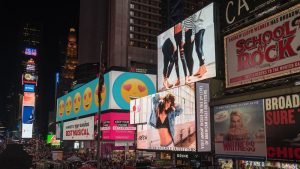In the world of advertising, the buzzword of the past year has been generative artificial intelligence (AI). This technology, capable of creating content from historical data, has garnered industry interest and is poised to revolutionize advertising. Marketing teams are anticipating that it will lead to cheaper, faster, and virtually endless product advertising.
Two leading consumer goods giants, Nestle and Unilever, along with the world's largest marketing agency, WPP, have embraced generative AI technologies like ChatGPT and DALL-E to decrease costs and boost efficiency in their advertising efforts. WPP CEO Mark Read revealed that this technology has enabled substantial savings, citing an example where they shot a commercial virtually instead of sending a crew to Africa.
The partnership between WPP and Mondelez on an AI-driven Cadbury campaign in India showcases the transformative power of generative AI. The campaign featured actor Shah Rukh Khan encouraging consumers to spend at local retailers during Diwali. Small businesses leveraged the technology to create ads for social media platforms, resulting in 130,000 advertisements involving 2,000 retailers and 94 million YouTube and Facebook views.
WPP is actively investing in AI talent, with apprenticeships for young AI enthusiasts and collaborations with institutions like Oxford for marketing courses. Daniel Hulme's appointment as Chief AI Officer is an example of this commitment.
Nestle's Global Chief Marketing Officer, Aude Gandon, expressed the company's interest in using ChatGPT 4.0 and DALL-E 2 to advertise its products. She emphasized that the generative AI engine is providing creative ideas that align with the brand's strategy, which the creative team transforms into website content.
Despite the excitement surrounding generative AI in advertising, concerns persist. These include issues related to security, copyright, and unintentional biases in the data that fuels the software. In response, companies like Unilever are taking measures to ensure that their AI technology avoids perpetuating biases, particularly those related to race or gender.
The impact of generative AI on the creative landscape is undeniable. One striking example is Nestle's use of OpenAI's DALL-E 2 to create an ad for its La Laitière yogurt brand, inspired by Johannes Vermeer's painting 'The Milkmaid.' This innovative approach generated significant media value for Nestle and demonstrated the creative potential of AI.
As the advertising landscape continues to evolve, the role of generative AI is set to become increasingly prominent, reshaping how brands engage with consumers in the digital age.




















